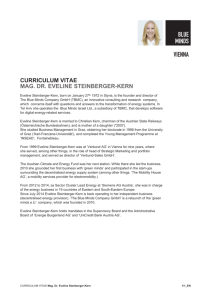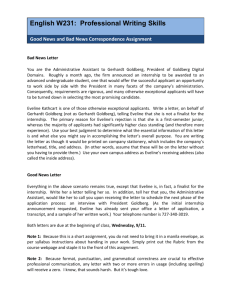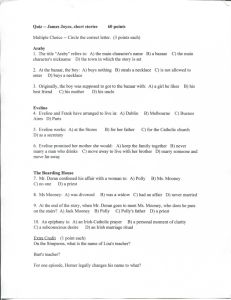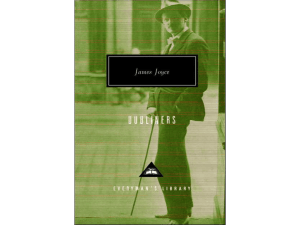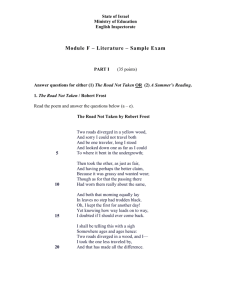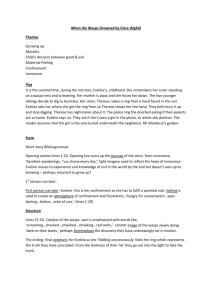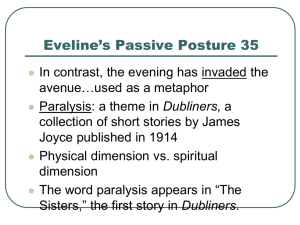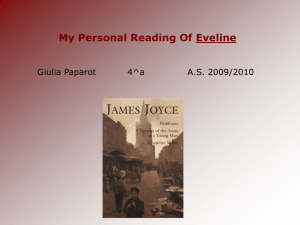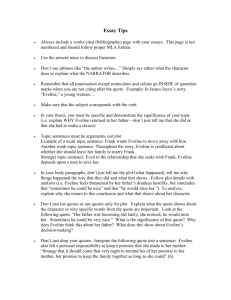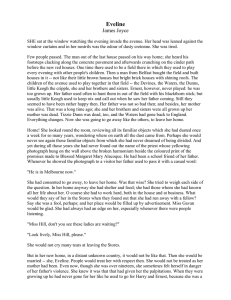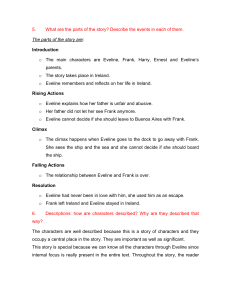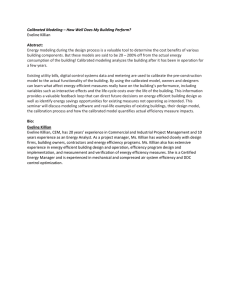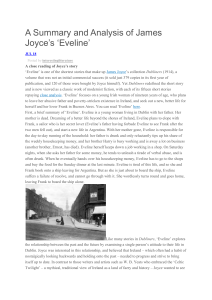"Eveline" by James Joyce - Close Reading Practice ANSWERS
advertisement
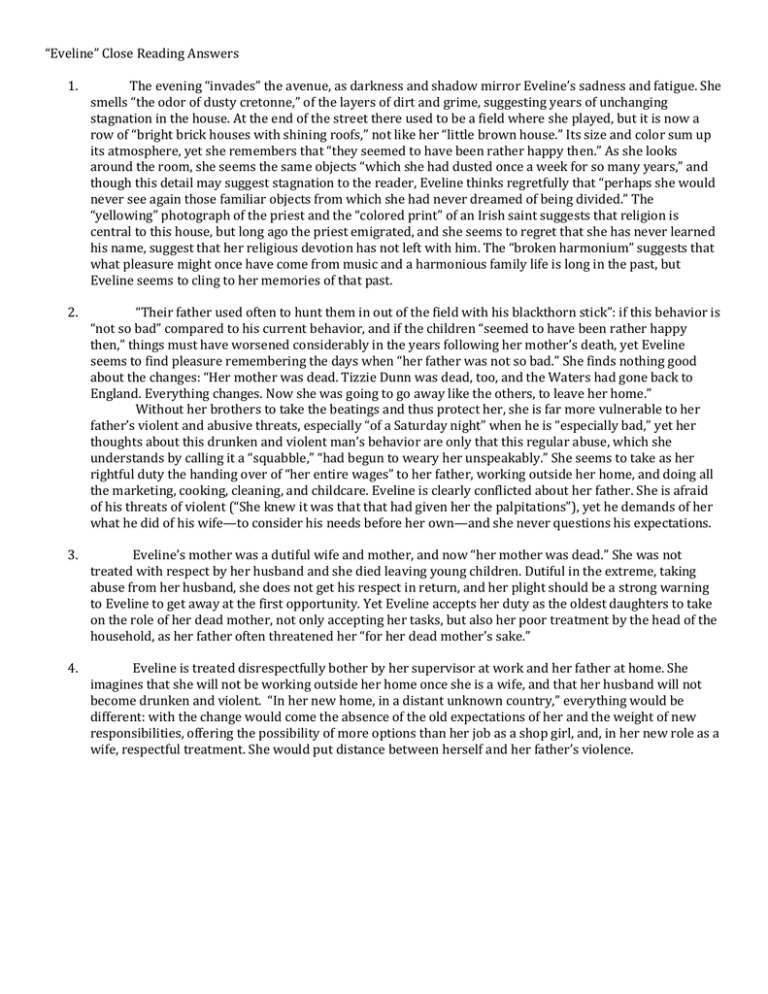
“Eveline” Close Reading Answers 1. The evening “invades” the avenue, as darkness and shadow mirror Eveline’s sadness and fatigue. She smells “the odor of dusty cretonne,” of the layers of dirt and grime, suggesting years of unchanging stagnation in the house. At the end of the street there used to be a field where she played, but it is now a row of “bright brick houses with shining roofs,” not like her “little brown house.” Its size and color sum up its atmosphere, yet she remembers that “they seemed to have been rather happy then.” As she looks around the room, she seems the same objects “which she had dusted once a week for so many years,” and though this detail may suggest stagnation to the reader, Eveline thinks regretfully that “perhaps she would never see again those familiar objects from which she had never dreamed of being divided.” The “yellowing” photograph of the priest and the “colored print” of an Irish saint suggests that religion is central to this house, but long ago the priest emigrated, and she seems to regret that she has never learned his name, suggest that her religious devotion has not left with him. The “broken harmonium” suggests that what pleasure might once have come from music and a harmonious family life is long in the past, but Eveline seems to cling to her memories of that past. 2. “Their father used often to hunt them in out of the field with his blackthorn stick”: if this behavior is “not so bad” compared to his current behavior, and if the children “seemed to have been rather happy then,” things must have worsened considerably in the years following her mother’s death, yet Eveline seems to find pleasure remembering the days when “her father was not so bad.” She finds nothing good about the changes: “Her mother was dead. Tizzie Dunn was dead, too, and the Waters had gone back to England. Everything changes. Now she was going to go away like the others, to leave her home.” Without her brothers to take the beatings and thus protect her, she is far more vulnerable to her father’s violent and abusive threats, especially “of a Saturday night” when he is “especially bad,” yet her thoughts about this drunken and violent man’s behavior are only that this regular abuse, which she understands by calling it a “squabble,” “had begun to weary her unspeakably.” She seems to take as her rightful duty the handing over of “her entire wages” to her father, working outside her home, and doing all the marketing, cooking, cleaning, and childcare. Eveline is clearly conflicted about her father. She is afraid of his threats of violent (“She knew it was that that had given her the palpitations”), yet he demands of her what he did of his wife—to consider his needs before her own—and she never questions his expectations. 3. Eveline’s mother was a dutiful wife and mother, and now “her mother was dead.” She was not treated with respect by her husband and she died leaving young children. Dutiful in the extreme, taking abuse from her husband, she does not get his respect in return, and her plight should be a strong warning to Eveline to get away at the first opportunity. Yet Eveline accepts her duty as the oldest daughters to take on the role of her dead mother, not only accepting her tasks, but also her poor treatment by the head of the household, as her father often threatened her “for her dead mother’s sake.” 4. Eveline is treated disrespectfully bother by her supervisor at work and her father at home. She imagines that she will not be working outside her home once she is a wife, and that her husband will not become drunken and violent. “In her new home, in a distant unknown country,” everything would be different: with the change would come the absence of the old expectations of her and the weight of new responsibilities, offering the possibility of more options than her job as a shop girl, and, in her new role as a wife, respectful treatment. She would put distance between herself and her father’s violence.
